


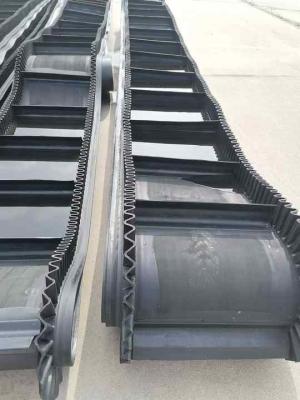
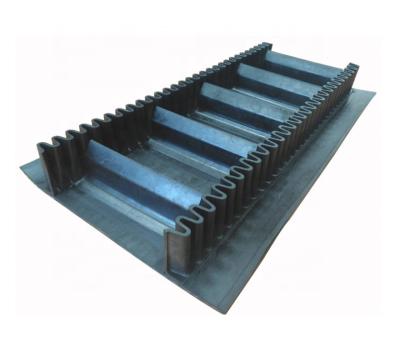
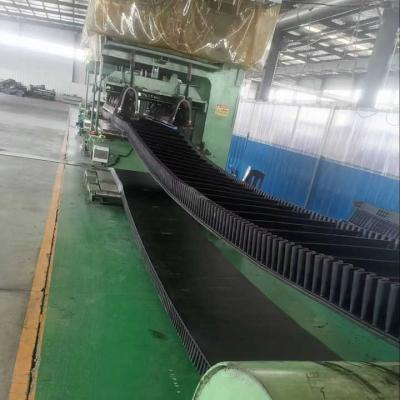
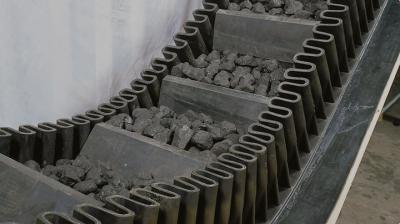
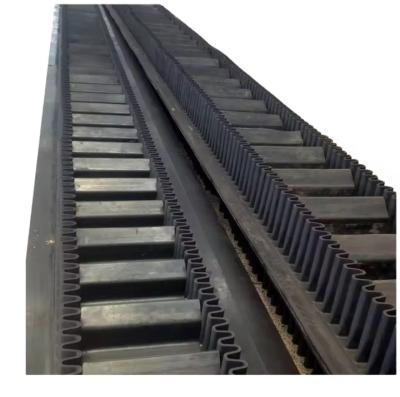

| Price | Negotiable |
| MOQ | 100 meters |
| Delivery Time | 10-30 days |
| Brand | UCER |
| Place of Origin | China |
| Certification | Enterprise credit rating AAA |
| Model Number | EP100/EP150/EP200/EP250/EP300 |
| Packaging Details | Iron packing, iron frame or other |
| Payment Terms | L/C, D/P, T/T |
| Supply Ability | 10000 per month |
| Place of Origin | China | Inclination angle | 0-90 degrees |
| Packaging Details | Iron packing, iron frame or other | Color | Black |
| Standard | GB/T7984-2001 | Core material | EP100 |
| The thickness of the upper cover | 3-6mm | Model Number | EP100/EP150/EP200/EP250/EP300 |
| Supply Ability | 10000 per month | Certification | Enterprise credit rating AAA |
| Brand Name | UCER | Payment Terms | L/C, D/P, T/T |
| The thickness of the lower cover rubber | 1.5-4.5mm | Price | Negotiable |
| Delivery Time | 10-30 days | Minimum Order Quantity | 100 meters |
| Model | EP100/EP150/EP200 | Storage temperature | -18℃-40℃ |
Fertilizer Sand EP250 EP300 Inclined Conveyor Belts
Skirt conveyor belts are divided into two types: conveyor belts with skirts and no clapboards and conveyor belts with skirts and clapboards. It can continuously convey all kinds of bulk materials at an arbitrary inclination angle of 0-90 degrees, with a large conveying inclination angle, a wide range of use, and a small area. The features of no transfer point, reduced civil construction investment, low maintenance cost, and large conveying capacity solve the conveying angle that cannot be achieved by ordinary conveyor belts or patterned conveyor belts. The corrugated sidewall conveyor belt can be designed as a complete conveyor system according to the requirements, avoiding the lifting system of intermittent conveying and complex conveying.
1. Classification of skirt conveyor belts
Skirt
conveyor
belts
are
divided
into
two
types:
conveyor
belts
with
skirts
and
no
clapboards
and
conveyor
belts
with
skirts
and
clapboards.
Various
bulk
materials
can
be
continuously
conveyed
at
an
arbitrary
inclination
angle
of
0-90
degrees,
with
a
large
conveying
inclination
angle,
a
wide
range
of
use,
and
a
small
footprint.
The
features
of
no
transfer
point,
reduced
civil
construction
investment,
low
maintenance
cost,
and
large
conveying
capacity
solve
the
conveying
angle
that
cannot
be
achieved
by
ordinary
conveyor
belts
or
patterned
conveyor
belts.
The
corrugated
sidewall
conveyor
belt
can
be
designed
as
a
complete
conveyor
system
according
to
the
requirements,
avoiding
the
lifting
system
of
intermittent
conveying
and
complex
conveying.
The
corrugated
sidewall
conveyor
belt
can
transport
all
kinds
of
bulk
materials
in
horizontal,
inclined,
vertical
and
variable-angle
directions,
from
coal,
ore,
sand
to
fertilizer
and
grain.
The
particle
size
of
the
material
is
not
limited,
from
a
small
particle
size
to
a
large
particle
size
of
400mm,
and
the
conveying
capacity
can
be
from
1
cubic
meter/hour
to
6000
cubic
meters/hour.
2. Baseband
The
base
tape
is
composed
of
four
parts:
upper
cover
rubber,
lower
cover
rubber,
belt
core
and
lateral
rigid
layer.
The
thickness
of
the
upper
cover
rubber
is
generally
3-6mm;
the
thickness
of
the
lower
cover
rubber
is
generally
1.5-4.5mm.
The
core
material
bears
the
tensile
force,
and
the
material
can
be
cotton
canvas
(CC),
nylon
canvas
(NN),
polyester
canvas
(EP)
or
steel
wire
rope
(ST).
In
order
to
increase
the
lateral
rigidity
of
the
base
belt,
a
special
reinforcement
layer
is
added
to
the
core,
which
is
called
a
lateral
rigid
layer.
The
width
specification
of
the
base
tape
is
the
same
as
that
of
the
ordinary
tape,
and
it
meets
the
standard
requirements
of
GB/T7984-2001.
<
| Variety | Standards and main indicators |
| Ordinary steel cord conveyor belt | GB/T9770-2001 |
| Flame-retardant steel cord conveyor belt | MT668-1997 |
| General flame-retardant steel cord conveyor belt | MT668-1997 |
| Heat-resistant steel cord conveyor belt | HG2297-92 |
| Wear-resistant steel cord conveyor belt | Shaoboer wear amount ≤90mm 3 |
| Acid, alkali and oil resistant steel cord conveyor belt |
HG4-846 HG4-846 |
| Cold-resistant steel cord conveyor belt | Brittleness temperature -40℃ |





